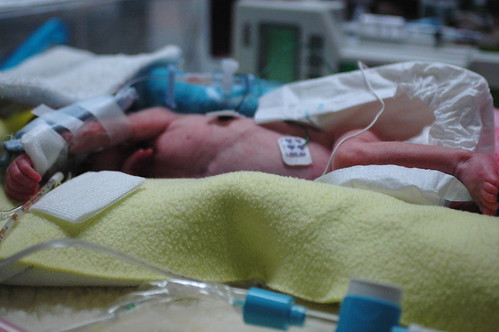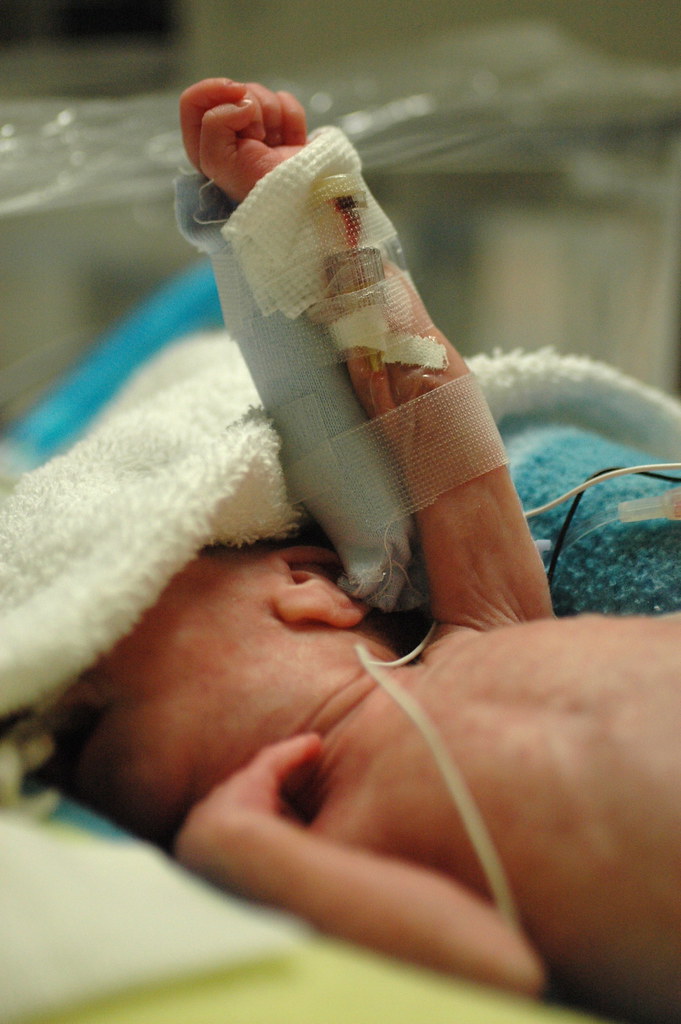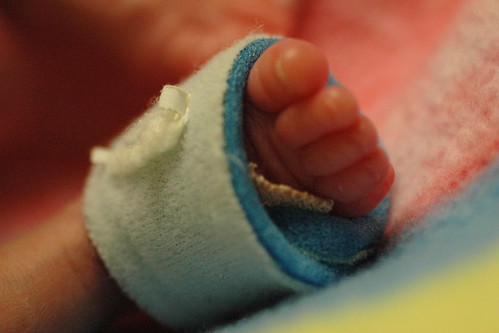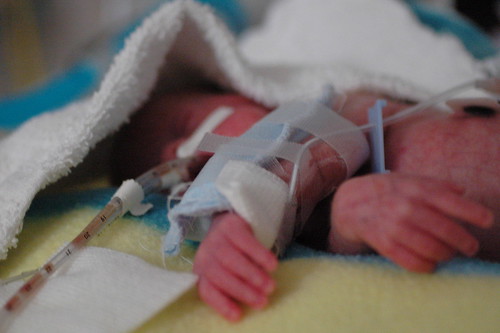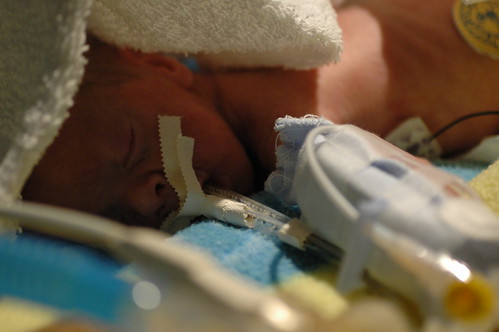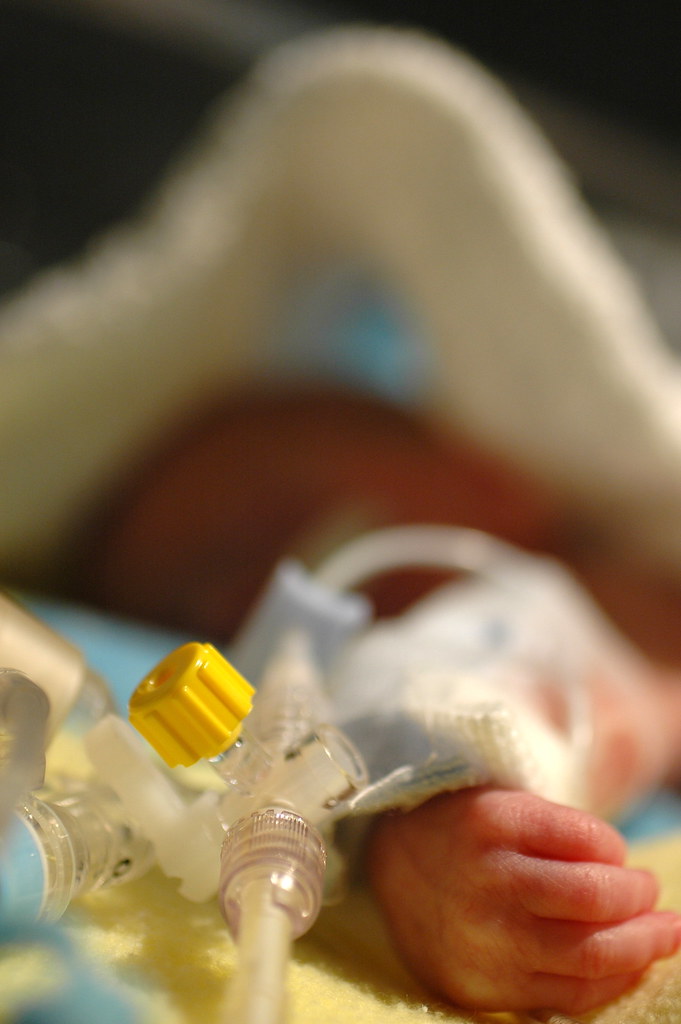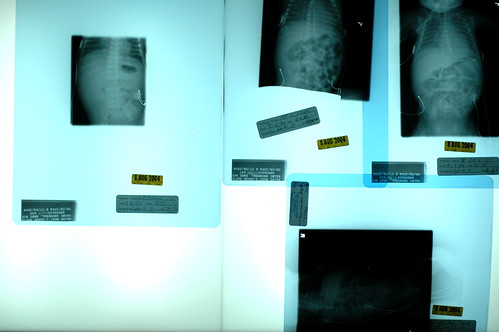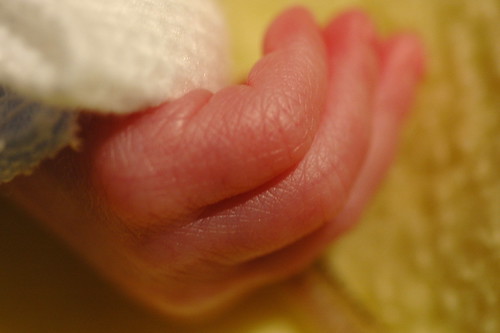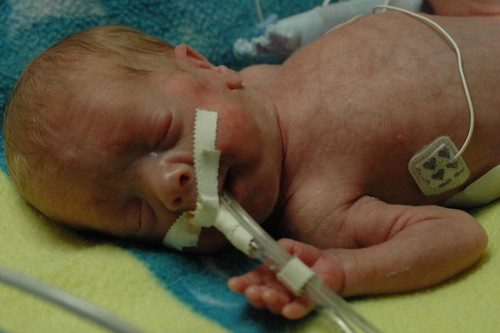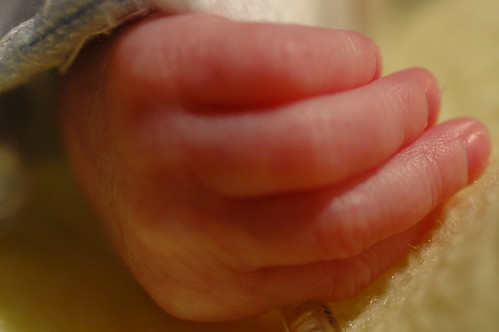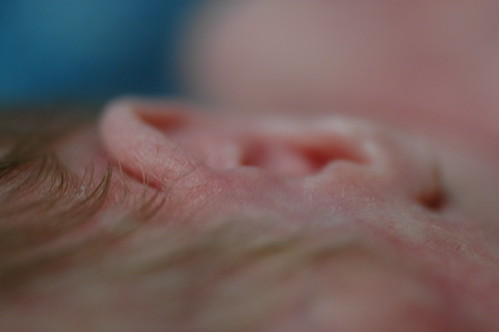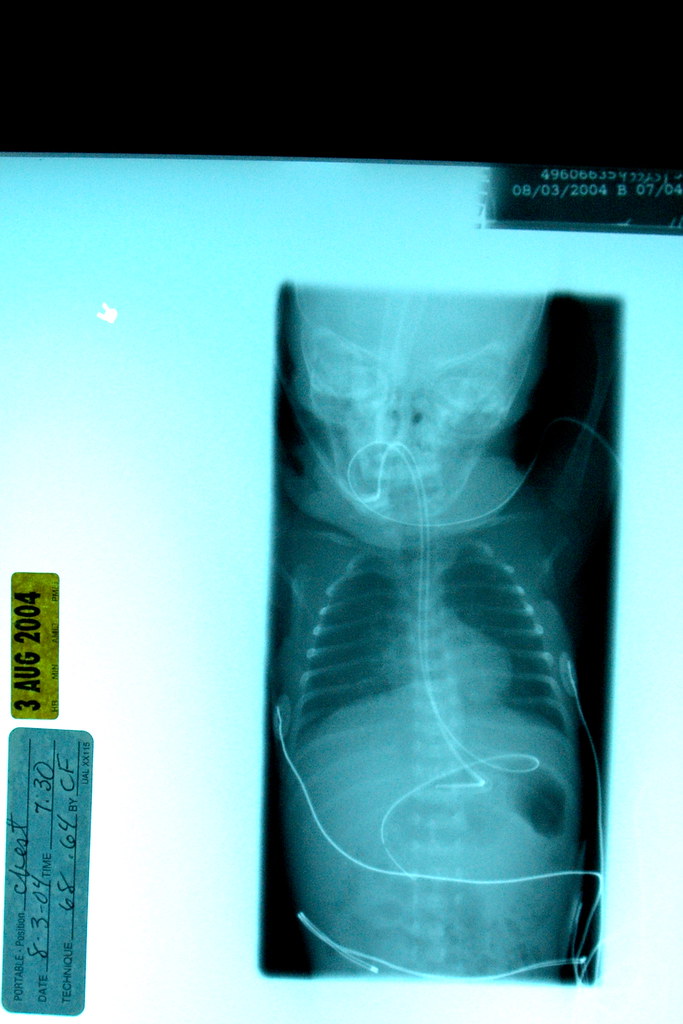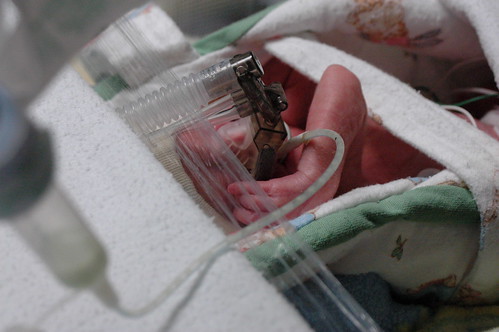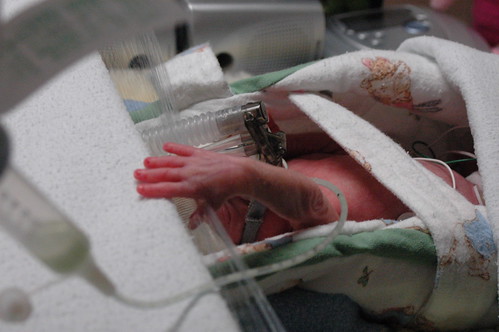three hours. that’s how quickly things can go to hell in a handbasket. we left at 11 p.m. last night, as confident as ever that we had escaped any problems which seemed to be lurking in the background all week long; by 2 a.m. several of eric’s systems were failing all at once and by 4 a.m. there was serious concern that he might have a perforated bowel and they were getting ready to transport him to the other nicu in town for emergency surgery. at the time, apparently the only thing that kept eric from being transported was the fact that the surgeons said that they wouldn’t do the surgery on him because he was too small to survive.
the following twelve hours were filled with as many, if not more, emotional ups-and-downs than the night eric was born. as the complications were delineated it became apparent that he had not one, not two but three calamitous events occurring, two of which were characterized as rare. the most acutely dangerous event was known as a strangulated hernia ( ironically, the determination that he did, in fact, have a hernia was considered so uneventful that i decided not to post such boring news right away ), which happens when fecal matter gets pushed into the herniated bowel and can quickly lead to a perforation. and the last thing you want with a micropreemie is a hole in the intestine, leaking fecal matter and air throughout the abdomen. it’s quite uncommon to see a strangled hernia in a micropreemie; only one of the nurses could remember an occurrence, 7 years ago, and couldn’t remember having seen any prior incidences. somehow the neonatologist was able to unstrangulate his hernia by holding him upside down and pushing and poking at the hernia. in a very understated way, the neonatologist would later allude to just how lucky we were that her improvised unstrangulation technique worked, as i’m not sure what would have been done since it was already determined that they weren’t going to perform surgery on him on account of him smallness.
why was fecal matter being so forcefully pushed through his hernia? because it didn’t have any place to go as his bowels were shutting down and everything was stopped from moving along normally. in addition to creating a strangulated hernia, his backed up bowels quickly began pushing on his lungs, which stopped his breathing and necessitated eric being put back on the vent. and why were his bowels shutting down? a quick blood panel indicated that he was quickly getting an infection ( as evidenced by an increase in immature neutrophil cells or bands ), and his body began shunting blood away from his bowels and towards other areas in preparation for a battle royal. routing blood away from the intestines is likely a good strategy most of the time, as who has time for eating when you’ve got a bad infection, right? unfortunately when you’ve got 7 cc’s an hour of breastmilk coming in and blood moving out, you’re actually creating the best possible conditions for necrotizing enterocolitis.
as if a strangulated hernia, backed up bowels and a worsening general infection weren’t enough to make for an exciting night, the nurses discovered that while they were trying to unstrangulate his hernia, his skin was sloughing off. yes, you read that word right, his skin was falling away. disintergrating. and creating a festering mess. for a little thought experiment, try to imagine having to absorb the word sloughing at 4 in the morning. at the time the disintegrating skin was perhaps the scariest news, because nobody had seen anything like it. nobody. in the morning nurse jan confessed that she hadn’t seen it in 22 years of working in the nicu. even the infectious disease specialist hadn’t seen anything like it.
oh, how we were wishing for good old days, when the worst we had to worry about was whether or not he’d be put back on the vent.
so the day was spent trying to come to grips with how quickly and how completely everything had fallen apart, as we tried to stay focused on how his clinical pictures was changing from moment to moment. an antibiotic regime was started to help fight the general infection and they decided to treat the mystery topical infection with pretty much everything they had as they were lacking any any definitive specific lab results ( no trace of yeast in the infection and no bugs are caught growing; the lack of any yeast was described and bizarre, since you’d expect to see some and as we learned in the past, it’s not that surprising to not catch the bugs ), they decide to treat it as if could be anything, which i guess is just about the only thing you can do. as the day wore on, his blood counts began to slowly return to normal and by the evening almost all evidence of the skin sloughing had disappeared.
it’s hard to describe the feeling that you’re left with as you realize that the wreckers of such rare havoc are going to fade away without you ever knowing their names.
it took quite some time for the neonatologist to rule out a bowel performation, as the regular x-rays kept showing large amounts of air in his bowels and it was difficult to know if the air was inside or outside the intestine; a specialized x-ray machine was hauled in which could more easily allow them to determine if the air was moving as he changed positions, which would mean that it was floating around his abdominal cavity.
as luck would have it while the film was being processed, there were two more admits to the nicu, which meant that we had to sit around, wondering when they’d get a free second to review the results and release us from the purgatory of not knowing if he had a perforation. eventually, the neonatologist rushed in and exclaimed that everything looked great and that we were out of immediate danger for now.
it’s funny how quickly you can reset your personal expectations as to what constitutes good news. before we left for the night we watched eric resting comfortably on the vent, feeling a sense of relief to see him so peaceful while pondering the irony that today’s good news would have been yesterday’s catastrophe.
many, many thanks to all of eric’s wonderful caregivers whose attentive observations and quick, accurate actions helped to avert what surely could have been a disaster. i’ve said it many times already, but i have no idea how you do what you do.
